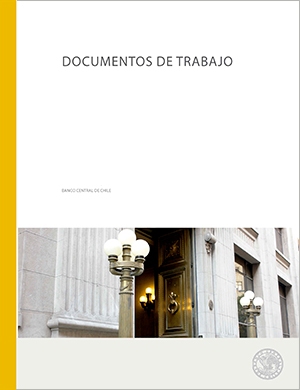Working Papers N° 807: The Implications of Exhaustible Resources and Sectoral Composition for Growth Accounting: An Application to Chile
Publications
Working Papers N° 807: The Implications of Exhaustible Resources and Sectoral Composition for Growth Accounting: An Application to Chile
Autor: Claudia De la Huerta , Emiliano Luttini
Description
Standard growth accounting overlooks the role of exhaustible resources. This omission leads to overstating physical capital shares and to misleading total factor productivity (TFP). We study an application to Chile, a country dependent on mining production. First, we quantify the sources of economic growth. Second, we study TFP gains arising from changes on the economy's sectoral composition. Our results are as follows. Mining value added grows at an average annual rate of 0.69%. Productivity, physical and human capital contribute 3.75%. The exhaustible resource (ore grade) contributes -2.96%. At the aggregate level, omitting ore grade overstates the contribution of capital, 0.55%, and understates TFP growth, 0.96%. We document a composition gain of -0.53% between the mining and non-mining sectors. We obtain a 0.68% composition gain within the nonmining sector. We show that mining countries are exposed to similar sources of sectoral productivity growth as the Chilean economy.
Working Papers N° 807: The Implications of Exhaustible Resources and Sectoral Composition for Growth Accounting: An Application to Chile
Boxes and graphics

